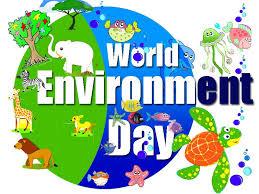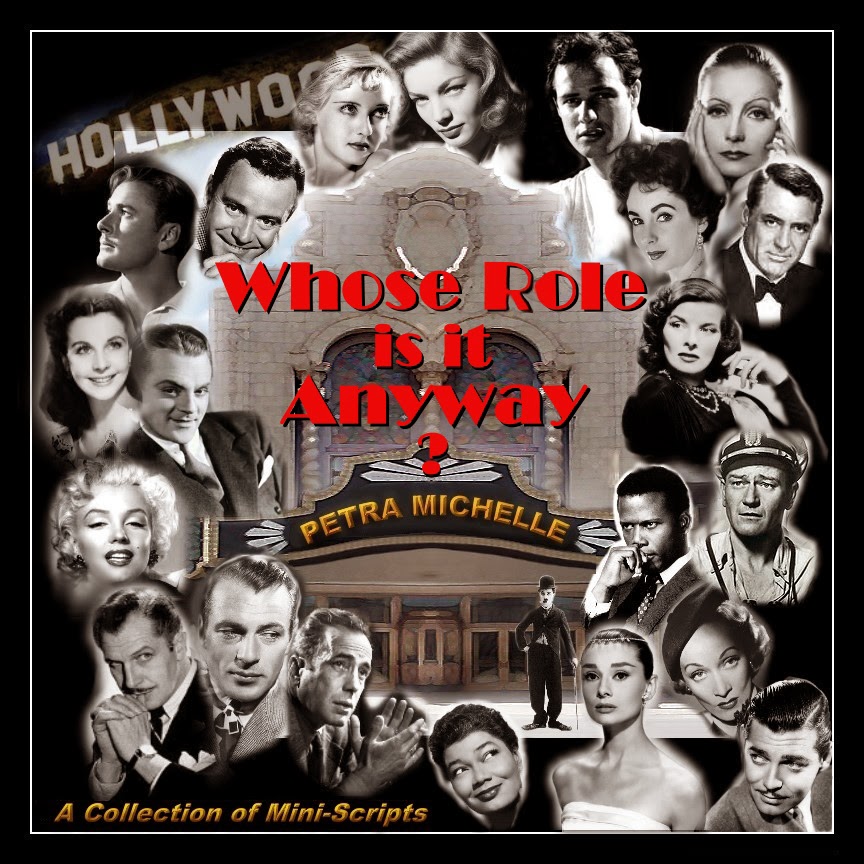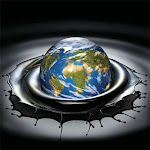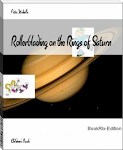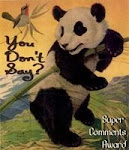Please pause playlist at bottom of page to hear/watch video.
Monday, February 28, 2011
Thursday, February 24, 2011
Monday, February 21, 2011
Wednesday, February 16, 2011
"One of these days I'm gonna sit down and write a long letter to all the good friends I've known..."
This post is dedicated to my friends who have been affected by time and responsibilities. I will be writing a very long letter soon! Love, Petra xo
"One Of These Days"
by Neil Young
One of these days
I'm gonna sit down
and write a long letter
to all the good friends I've known;
And I'm gonna try
to thank them all
for the good times together
though so apart we've grown.
One of these days
I'm gonna sit down
and write a long letter
to all the good friends I've known;
One of these days,
one of these days,
one of these days,
And it won't be long, it won't be long, it won't be long, it won't be long.
And I'm gonna thank
that old country fiddler
And all those rough boys
who play that rock 'n' roll;
I never tried to burn any bridges
though I know I let some good things go.
One of these days
I'm gonna sit down
and write a long letter
to all the good friends I've known;
One of these days,
one of these days,
one of these days,
And it won't be long, it won't be long, it won't be long, it won't be long.
From down in L.A.
all the way to Nashville
from New York City
to my Canadian prairie home;
My friends are scattered
like leaves from an old maple
some are weak, some are strong.
One of these days
I'm gonna sit down
and write a long letter
to all the good friends I've known;
One of these days,
one of these days,
one of these days,
And it won't be long, it won't be long, it won't be long, it won't be long.
One of these days,
one of these days,
one of these days,
And it won't be long, it won't be long, it won't be long, it won't be long.
One of these days
I'm gonna sit down
and write a long letter
to all the good friends I've known;
And I'm gonna try
to thank them all
for the good times together
though so apart we've grown.
One of these days
I'm gonna sit down
and write a long letter
to all the good friends I've known;
One of these days,
one of these days,
one of these days,
And it won't be long, it won't be long, it won't be long, it won't be long.
And I'm gonna thank
that old country fiddler
And all those rough boys
who play that rock 'n' roll;
I never tried to burn any bridges
though I know I let some good things go.
One of these days
I'm gonna sit down
and write a long letter
to all the good friends I've known;
One of these days,
one of these days,
one of these days,
And it won't be long, it won't be long, it won't be long, it won't be long.
From down in L.A.
all the way to Nashville
from New York City
to my Canadian prairie home;
My friends are scattered
like leaves from an old maple
some are weak, some are strong.
One of these days
I'm gonna sit down
and write a long letter
to all the good friends I've known;
One of these days,
one of these days,
one of these days,
And it won't be long, it won't be long, it won't be long, it won't be long.
One of these days,
one of these days,
one of these days,
And it won't be long, it won't be long, it won't be long, it won't be long.
One of these days,
one of these days,
one of these days,
And it won't be long, it won't be long, it won't be long, it won't be long.
.
Labels:
friends,
letter,
neil young
Friday, February 11, 2011
Monday, February 7, 2011
Why are we using up the Earth? by conservationist, Carl Safina
A noteworthy perspective by a committed and leading conservationist on Earth's environmental plight.
Editor's note: Carl Safina is president of The Blue Ocean Institute and was named by Audubon magazine among the leading 100 conservationists of the 20th century. He is author of the book, "The View From Lazy Point: A Natural Year in an Unnatural World." He has helped lead campaigns to ban high-seas driftnets, re-write U.S. fisheries law and reduce albatross and sea turtle drownings on commercial fishing lines.
"Well, we now have a new Republican Speaker of the House and a new year. But how much has really changed?
My dog Kenzie, a 50-pound black wolf -- more-or-less -- goes loping along the shore as is her custom, energetically invested in the obvious truth that all adventure lies at the tip of one's nose. If you can detect the scent and follow it, it will take you far. And soon, as always, she's way ahead.
This daily morning walk is how I take the pulse of the place, and my own. The rhythm of the year here on eastern Long Island beats to the pulse of a perpetual series of migrations, rivers of life along the leading line of coast. Fishes and birds mainly. But also migrating butterflies, dragonflies, whales, sea turtles, even tree frogs and toads and salamanders, whose migrations move them merely from woodland to wetland and back. Each kind has its own schedule, moves to its own drum.
Getting tuned-in to the migrants' urgent energies turns "four seasons" into a much more complex idea of what life does, what life is, of where life begins and goes.
To simplify, life -- Earth's trademark enterprise -- begins with plants, supported by air, water and soil, powered by sunlight. Basically, life on Earth is a story of plants making and animals taking.
We're pumping freshwater faster than rain falls, catching fish faster than they spawn. Forty percent of tropical coral reefs are rapidly deteriorating; none of the rest are considered safe. Forests are shrinking by about an acre per second.
The United Nations expects the population to grow by mid-century to more than 9 billion people; that's two more Chinas. The world adds about 70 million people each year, twice as many as live in California.
Meanwhile, populations of fishes, amphibians, mammals, reptiles and birds have declined about 30% worldwide since 1970, according to the World Wildlife Fund. The last extinction wave this severe snuffed the dinosaurs.
We're pumping freshwater faster than rain falls, catching fish faster than they spawn. Forty percent of tropical coral reefs are rapidly deteriorating; none of the rest are considered safe. Forests are shrinking by about an acre per second.
Compared with the day 13 colonies on the sunrise side of a wilderness continent asserted independence as the United States, the planet's atmosphere is quite different. Ozone: thinner. Carbon dioxide: denser by a third and concentrating further.
Synthetic fertilizers have doubled the global nitrogen flow to living systems, washing down rivers and, since the 1970s, creating hundreds of oxygen-starved seafloor "dead zones."
Americans -- only 5% of the world population -- use roughly 30% of the world's nonrenewable energy and minerals, according to Worldwatch Institute. The Convention on Biodiversity aims -- aimed -- to protect the diversity of living things, but its own assessment says, "Biodiversity is in decline at all levels and geographical scales," a situation "likely to continue for the foreseeable future."
In accounting terms, we're running a deficit, eating into our principal, running down and liquidating our natural capital assets. The question: Why are we letting this happen?
For the longest time, people didn't even have a real sense of, well, time. Until the early 1800s, Western people had essentially no concept of Earth's age, or that certain formerly living things had become extinct. When Charles Darwin departed for his voyage on the Beagle, the word "scientist" did not exist.
Since the mid-1800s, we've finally started learning basic things about how the world actually works. We understand the water cycle, carbon cycle, nitrogen cycle, the composition of air and the circulation of oceans. We created the entirely new fields of geology, biology, ecology, genetics and hi-tech medicine.
But civilization's way of doing business remains rooted in philosophies, religious traditions and ethical frameworks written many centuries ago. The first stock exchange opened in 1602, in Amsterdam. By 1637, "tulip mania" had caused the first speculation bubble and crash.
Not a lot has changed. Virtually every business still uses the double-entry bookkeeping and accounting used in 13th-century Venice, first written down in the 1400s by Leonardo da Vinci's friend, the Franciscan monk Luca Pacioli. His book Summa de Arithmetica established the concept that banks' main assets are other people's debts -- and we know where that's gotten us recently.
So, our daily dealings are still heavily influenced by ideas that were pretty much set before anyone knew the world was round, before it ever occurred to anyone that the world changes, and certainly before anyone suspected that anything people do could change the world.
In many ways, the ways we operate reflect how we understood the world when we didn't understand the world at all. You wouldn't treat an illness by calling a medical doctor from the Middle Ages, but we run the modern world with only pre-modern comprehension. If markets understood the world, things that harmed the world would be prohibitively expensive.
Our institutions are so out of sync with the way the world really works that they're essentially irrational. And it shows. That's why we so blithely allow ourselves to shrink forests, empty oceans, alter the atmosphere, endanger our children's times and risk so much of the world.
Despite overhauled ways of knowing, old thinking prevails. And if the whole human enterprise has one fatal shortcoming, this is likely it.
But I'll make a casual wager: Things now largely ignored will become too obvious to deny. It becomes a question of "When?"
Here's what I think is obvious: Civilization can't keep running on nonrenewable fossil fuels because by definition they will run out. Eventually we will either have to scale up renewable energy or civilization will end. And we can't keep adding people infinitely to a finite planet. That only shortens the time we have for the energy transition. If we begin accepting the obvious, and start making the transition now, I think we might be OK.
Republicans now have more seats in Congress, but, really, is saving civilization a partisan issue? Is investing in America's infrastructure and creating the jobs to build and scale up new energy technologies a partisan issue? We need to begin seeing that the real issues are much bigger than party loyalties."
The opinions expressed in this commentary are solely those of Carl Safina.
Editor's note: Carl Safina is president of The Blue Ocean Institute and was named by Audubon magazine among the leading 100 conservationists of the 20th century. He is author of the book, "The View From Lazy Point: A Natural Year in an Unnatural World." He has helped lead campaigns to ban high-seas driftnets, re-write U.S. fisheries law and reduce albatross and sea turtle drownings on commercial fishing lines.
"Well, we now have a new Republican Speaker of the House and a new year. But how much has really changed?
My dog Kenzie, a 50-pound black wolf -- more-or-less -- goes loping along the shore as is her custom, energetically invested in the obvious truth that all adventure lies at the tip of one's nose. If you can detect the scent and follow it, it will take you far. And soon, as always, she's way ahead.
This daily morning walk is how I take the pulse of the place, and my own. The rhythm of the year here on eastern Long Island beats to the pulse of a perpetual series of migrations, rivers of life along the leading line of coast. Fishes and birds mainly. But also migrating butterflies, dragonflies, whales, sea turtles, even tree frogs and toads and salamanders, whose migrations move them merely from woodland to wetland and back. Each kind has its own schedule, moves to its own drum.
Getting tuned-in to the migrants' urgent energies turns "four seasons" into a much more complex idea of what life does, what life is, of where life begins and goes.
To simplify, life -- Earth's trademark enterprise -- begins with plants, supported by air, water and soil, powered by sunlight. Basically, life on Earth is a story of plants making and animals taking.
We're pumping freshwater faster than rain falls, catching fish faster than they spawn. Forty percent of tropical coral reefs are rapidly deteriorating; none of the rest are considered safe. Forests are shrinking by about an acre per second.
The United Nations expects the population to grow by mid-century to more than 9 billion people; that's two more Chinas. The world adds about 70 million people each year, twice as many as live in California.
Meanwhile, populations of fishes, amphibians, mammals, reptiles and birds have declined about 30% worldwide since 1970, according to the World Wildlife Fund. The last extinction wave this severe snuffed the dinosaurs.
We're pumping freshwater faster than rain falls, catching fish faster than they spawn. Forty percent of tropical coral reefs are rapidly deteriorating; none of the rest are considered safe. Forests are shrinking by about an acre per second.
Compared with the day 13 colonies on the sunrise side of a wilderness continent asserted independence as the United States, the planet's atmosphere is quite different. Ozone: thinner. Carbon dioxide: denser by a third and concentrating further.
Synthetic fertilizers have doubled the global nitrogen flow to living systems, washing down rivers and, since the 1970s, creating hundreds of oxygen-starved seafloor "dead zones."
Americans -- only 5% of the world population -- use roughly 30% of the world's nonrenewable energy and minerals, according to Worldwatch Institute. The Convention on Biodiversity aims -- aimed -- to protect the diversity of living things, but its own assessment says, "Biodiversity is in decline at all levels and geographical scales," a situation "likely to continue for the foreseeable future."
In accounting terms, we're running a deficit, eating into our principal, running down and liquidating our natural capital assets. The question: Why are we letting this happen?
For the longest time, people didn't even have a real sense of, well, time. Until the early 1800s, Western people had essentially no concept of Earth's age, or that certain formerly living things had become extinct. When Charles Darwin departed for his voyage on the Beagle, the word "scientist" did not exist.
Since the mid-1800s, we've finally started learning basic things about how the world actually works. We understand the water cycle, carbon cycle, nitrogen cycle, the composition of air and the circulation of oceans. We created the entirely new fields of geology, biology, ecology, genetics and hi-tech medicine.
But civilization's way of doing business remains rooted in philosophies, religious traditions and ethical frameworks written many centuries ago. The first stock exchange opened in 1602, in Amsterdam. By 1637, "tulip mania" had caused the first speculation bubble and crash.
Not a lot has changed. Virtually every business still uses the double-entry bookkeeping and accounting used in 13th-century Venice, first written down in the 1400s by Leonardo da Vinci's friend, the Franciscan monk Luca Pacioli. His book Summa de Arithmetica established the concept that banks' main assets are other people's debts -- and we know where that's gotten us recently.
So, our daily dealings are still heavily influenced by ideas that were pretty much set before anyone knew the world was round, before it ever occurred to anyone that the world changes, and certainly before anyone suspected that anything people do could change the world.
In many ways, the ways we operate reflect how we understood the world when we didn't understand the world at all. You wouldn't treat an illness by calling a medical doctor from the Middle Ages, but we run the modern world with only pre-modern comprehension. If markets understood the world, things that harmed the world would be prohibitively expensive.
Our institutions are so out of sync with the way the world really works that they're essentially irrational. And it shows. That's why we so blithely allow ourselves to shrink forests, empty oceans, alter the atmosphere, endanger our children's times and risk so much of the world.
Despite overhauled ways of knowing, old thinking prevails. And if the whole human enterprise has one fatal shortcoming, this is likely it.
But I'll make a casual wager: Things now largely ignored will become too obvious to deny. It becomes a question of "When?"
Here's what I think is obvious: Civilization can't keep running on nonrenewable fossil fuels because by definition they will run out. Eventually we will either have to scale up renewable energy or civilization will end. And we can't keep adding people infinitely to a finite planet. That only shortens the time we have for the energy transition. If we begin accepting the obvious, and start making the transition now, I think we might be OK.
Republicans now have more seats in Congress, but, really, is saving civilization a partisan issue? Is investing in America's infrastructure and creating the jobs to build and scale up new energy technologies a partisan issue? We need to begin seeing that the real issues are much bigger than party loyalties."
The opinions expressed in this commentary are solely those of Carl Safina.
Labels:
carl safina,
earth,
environment
Friday, February 4, 2011
Thank you so, Sandy of i beati for "The Stylish Blogger Award." After some years of friendship, I've come to appreciate your perspective that inner beauty is most stylish to you. I'm honored! :))


In accepting this gift, I'm to share seven things about myself. Most who have commuicated with me on this blog know I'm a writer, particularly, a screenwriter.
But to really know me, well, I'll try to share 7 of the infinite characteristics of me.
1. I love to laugh; from a silly face to the antics of Laurel and Hardy, I'm quick to join in on the fun.
2. I marvel at The Tao; not to become a monk, but to challenge myself every day in maintaining balance, well being, and peace of mind.
3. I love to dance in bare feet to the oldies while performing chores around the house. For that matter, I love music of every kind from mariachi to classical; from rock to jazz. I follow the lead of my tapping foot to a wonderful song.
4. Love the serenity of early morning and late night; yet, at the same time,
5. Love the rush of the day and bumping into my fellow human beings. I feel they're all my soul mates.
6. Love food; from Italian to Mexican, from sushi to Greek yogurt. And the range of my love of wine is as wide as my love for food.
2. I marvel at The Tao; not to become a monk, but to challenge myself every day in maintaining balance, well being, and peace of mind.
3. I love to dance in bare feet to the oldies while performing chores around the house. For that matter, I love music of every kind from mariachi to classical; from rock to jazz. I follow the lead of my tapping foot to a wonderful song.
4. Love the serenity of early morning and late night; yet, at the same time,
5. Love the rush of the day and bumping into my fellow human beings. I feel they're all my soul mates.
6. Love food; from Italian to Mexican, from sushi to Greek yogurt. And the range of my love of wine is as wide as my love for food.
7. There's nothing better than a great film or book; well, perhaps bathing under a waterfall on an island.
I could go on and on, but it would become a magnum opus!
Thank you again, Boobala, for your lovely gift! Love, Petra xo
Tuesday, February 1, 2011
Subscribe to:
Posts (Atom)

